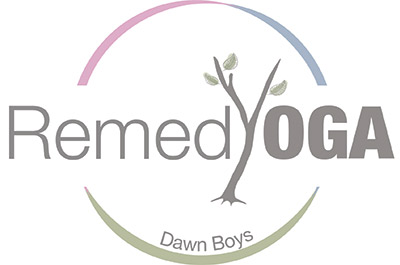As I write this, I’ve just returned from an incredible concert and on my way to see a 3 night concert that I attend annually at the Gorge Amphitheatre in Washington. Not only is the venue spectacular by I make this pilgrimage yearly to celebrate my favourite band with like minded souls and I get a reboot mentally, physically, emotionally & spiritually.
Music has many healing attributes and is free for almost anyone. A study that was done in 2018 showed that music improves emotional well being by 20%. Attending “gigs” had a profound impact on one’s health. Concert goer’s reported that feelings of self worth and closeness to others increased
25%! Overall, their mental stimulation was increased by 75%! Some studies attribute regular (monthly) concert attendance to an increased life expectancy to around 5 plus years.
Attending concerts isn’t the only way to achieve the health benefits. When children in Finland were studied who participated in singing classes, they found that there were higher satisfaction rates at school. In 2020, Harvard Medical School studied children’s learning outcomes when they had grown up with exposure to music. Those exposed showed 68% satisfaction with learning new things compared to 50% with children who weren’t exposed to music growing up.
Music with emotion is shown to synchronize areas of the brain that stimulates the motor system that causes our foot to tap before we actually tap. We seem to be hard wired to move to music.
In folks over 50 years of age. The Harvard study found that active musical involvement was associated with higher rates of happiness and cognitive function.
In cases of dementia and Alzheimer’s, music has been a game changer in therapeutic applications. Studies have shown that it can reduce agitation, improve communication and relations with caregivers. Northwestern Medicine Neurologist Borna Bonakdarpour MD, is a physician and musician. His approach to bringing in music has been used to help areas of the brain that aren’t functioning as well, and bridging the gaps in the networks. “Singing can bridge the gap to communicating better through language. The rhythmic nature of music can help people walk better.”
It often surprises people to see how someone living with dementia or Alzheimer’s can sing to a tune of a song they knew. This alone can stimulate cognitive receptors and be a lovely connection with their family and friends who can sing along with them too.
There are many ways to enjoy the benefits of your own music therapy buy just putting on the radio, attending a local performance or playing an instrument, if you play. Music keeps our brain networks strong and is shown to access almost all regions and networks of the brain to keep these pathways wiring and firing. Even background music has been shown to have significant benefits.
Healing Power of Music
As I write this, I’ve just returned from an incredible concert and on my way to see a 3 night concert that I attend annually at the Gorge Amphitheatre in Washington. Not only is the venue spectacular by I make this pilgrimage yearly to celebrate my favourite band with like minded souls and I get a reboot mentally, physically, emotionally & spiritually.
Music has many healing attributes and is free for almost anyone. A study that was done in 2018 showed that music improves emotional well being by 20%. Attending “gigs” had a profound impact on one’s health. Concert goer’s reported that feelings of self worth and closeness to others increased
25%! Overall, their mental stimulation was increased by 75%! Some studies attribute regular (monthly) concert attendance to an increased life expectancy to around 5 plus years.
Attending concerts isn’t the only way to achieve the health benefits. When children in Finland were studied who participated in singing classes, they found that there were higher satisfaction rates at school. In 2020, Harvard Medical School studied children’s learning outcomes when they had grown up with exposure to music. Those exposed showed 68% satisfaction with learning new things compared to 50% with children who weren’t exposed to music growing up.
Music with emotion is shown to synchronize areas of the brain that stimulates the motor system that causes our foot to tap before we actually tap. We seem to be hard wired to move to music.
In folks over 50 years of age. The Harvard study found that active musical involvement was associated with higher rates of happiness and cognitive function.
In cases of dementia and Alzheimer’s, music has been a game changer in therapeutic applications. Studies have shown that it can reduce agitation, improve communication and relations with caregivers. Northwestern Medicine Neurologist Borna Bonakdarpour MD, is a physician and musician. His approach to bringing in music has been used to help areas of the brain that aren’t functioning as well, and bridging the gaps in the networks. “Singing can bridge the gap to communicating better through language. The rhythmic nature of music can help people walk better.”
It often surprises people to see how someone living with dementia or Alzheimer’s can sing to a tune of a song they knew. This alone can stimulate cognitive receptors and be a lovely connection with their family and friends who can sing along with them too.
There are many ways to enjoy the benefits of your own music therapy buy just putting on the radio, attending a local performance or playing an instrument, if you play. Music keeps our brain networks strong and is shown to access almost all regions and networks of the brain to keep these pathways wiring and firing. Even background music has been shown to have significant benefits.
